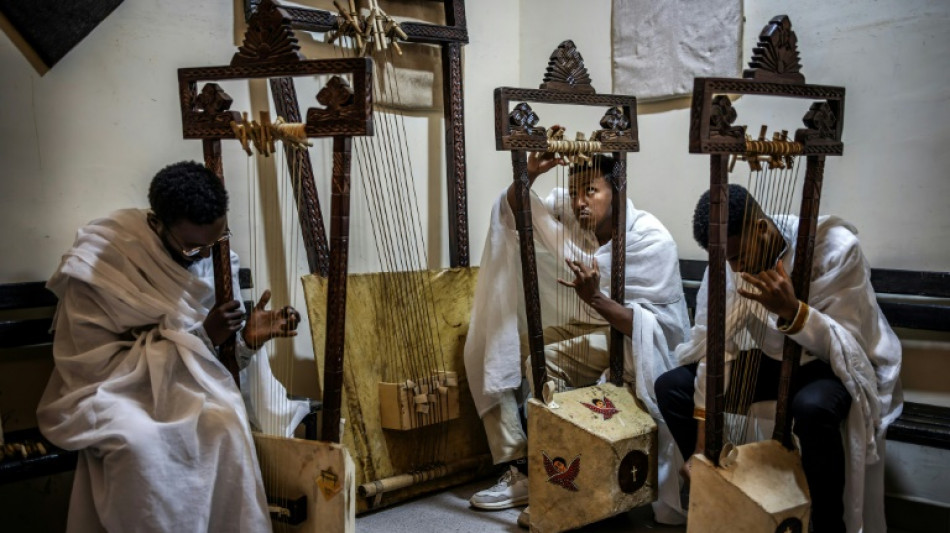
-
 Scandic Trust Group strengthens sales network with First Idea Consultant
Scandic Trust Group strengthens sales network with First Idea Consultant
-
Kazakhstan to join Abraham Accords as Trump pushes Mideast peace

-
 'Moral failure': Leaders seek to rally world at Amazon climate talks
'Moral failure': Leaders seek to rally world at Amazon climate talks
-
UN Security Council votes to lift sanctions on Syrian president
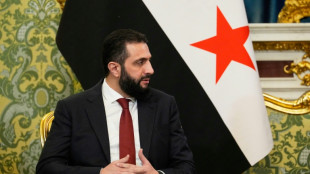
-
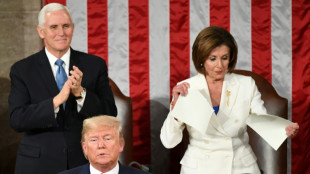 Democratic giant, trailblazer and Trump foe Nancy Pelosi to retire
Democratic giant, trailblazer and Trump foe Nancy Pelosi to retire
-
World leaders ditch ties at sweaty climate summit
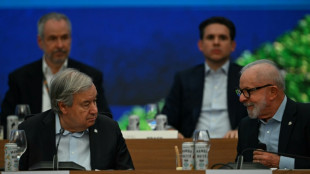
-
 Dallas Cowboys' Marshawn Kneeland dies at 24
Dallas Cowboys' Marshawn Kneeland dies at 24
-
Rally outside Rockstar against GTA studio's 'union busting'

-
 McLaren boss says would rather lose title than issue team orders
McLaren boss says would rather lose title than issue team orders
-
Sabalenka, top WTA stars urge Slams to revive 'stalled' negotiations

-
 5 killed in Afghan-Pakistan border fire despite peace talks: official
5 killed in Afghan-Pakistan border fire despite peace talks: official
-
Trump unveils deals to lower costs of some weight-loss drugs

-
 Controversial Canadian ostrich cull order will go ahead
Controversial Canadian ostrich cull order will go ahead
-
Mexico's Sheinbaum to boost reporting of sexual abuse after being groped
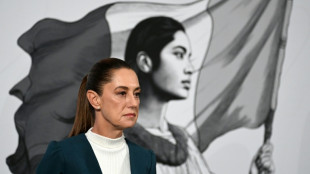
-
 Zuckerbergs put AI at heart of pledge to cure diseases
Zuckerbergs put AI at heart of pledge to cure diseases
-
Crypto giant Coinbase fined in Ireland for rule breaches

-
 Lawson relieved as he reveals FIA support following Mexican near-miss
Lawson relieved as he reveals FIA support following Mexican near-miss
-
US set for travel chaos as flights cut due to govt shutdown

-
 Sabalenka and Pegula book their spots in WTA Finals last four
Sabalenka and Pegula book their spots in WTA Finals last four
-
'Our brother-in-law': Arab world embraces New York's new mayor

-
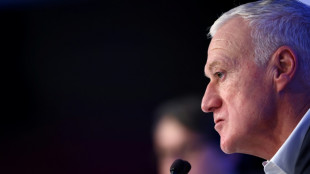 France boss Deschamps would prefer to 'avoid playing' on Paris attacks anniversary
France boss Deschamps would prefer to 'avoid playing' on Paris attacks anniversary
-
Pegula sweeps past Paolini to reach WTA Finals last four

-
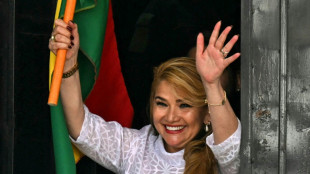 Bolivian ex-president Anez leaves prison after sentence annuled
Bolivian ex-president Anez leaves prison after sentence annuled
-
Stocks slide as investors weigh data, interest rate cuts

-
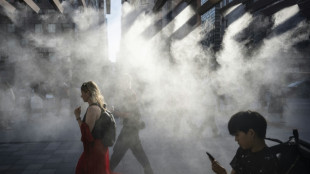 UN says 2025 to be among top three warmest years on record
UN says 2025 to be among top three warmest years on record
-
Fleetwood and Lowry lift each other into Abu Dhabi lead

-
 Fleetwod and Lowry lift each other into Abu Dhabi lead
Fleetwod and Lowry lift each other into Abu Dhabi lead
-
New Zealand make changes after Barrett brothers' injuries as Scotland drop Van der Merwe

-
 Dallas Cowboys' Marshawn Kneeland dies at 24: franchise
Dallas Cowboys' Marshawn Kneeland dies at 24: franchise
-
Pegula dispatches Paolini to keep WTA Finals semis bid alive

-
 Dutch giants Ajax sack coach John Heitinga
Dutch giants Ajax sack coach John Heitinga
-
Kirchner on trial in Argentina's 'biggest ever' corruption case

-
 Amorim urges Man Utd to 'focus on future' after Ronaldo criticism
Amorim urges Man Utd to 'focus on future' after Ronaldo criticism
-
US judge drops criminal charges against Boeing over 737 MAX 8 crashes

-
 World must face 'moral failure' of missing 1.5C: UN chief to COP30
World must face 'moral failure' of missing 1.5C: UN chief to COP30
-
UK grandmother leaves Indonesia death row to return home

-
 Garcia broken nose adds to Barca defensive worries
Garcia broken nose adds to Barca defensive worries
-
Tight UK security ahead of match against Israeli club

-
 Ethiopia's Afar region says attacked by Tigray forces
Ethiopia's Afar region says attacked by Tigray forces
-
Nancy Pelosi, Democratic giant, Trump foe, first woman House speaker, to retire
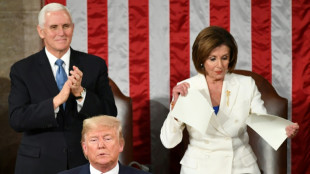
-
 Israel strikes Hezbollah targets in Lebanon
Israel strikes Hezbollah targets in Lebanon
-
Burger strikes as South Africa restrict Pakistan to 269-9 in second ODI

-
 Stocks slip as investors weigh earnings, tariffs
Stocks slip as investors weigh earnings, tariffs
-
Police say 19 held after raid at Swedish start-up Stegra to be deported

-
 Kante returns as France seek to clinch World Cup berth
Kante returns as France seek to clinch World Cup berth
-
Marcus Smith starts at full-back as England ring changes for Fiji

-
 Kolisi 100th Test 'no distraction' for Erasmus' South Africa
Kolisi 100th Test 'no distraction' for Erasmus' South Africa
-
Teetering Belgian government given more time to agree budget

-
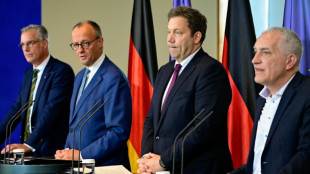 Merz backs EU plan to protect steel sector from Chinese imports
Merz backs EU plan to protect steel sector from Chinese imports
-
New Zealand make Scotland changes after Barrett brothers' injuries


Ethiopia's ancient instrument begena healing souls
Biruktawit Tasew's fingers glide over the strings of the begena, producing a deep, hypnotic sound. Along with six fellow musicians, she breaks into a solemn religious melody, holding their audience spellbound.
One of the country's oldest instruments, the begena was once reserved for the elite -- and effectively banned during the Marxist Derg regime between 1974 and 1991.
But it is experiencing a resurgence among Ethiopia's artistic community.
For the past three years, Biruktawit's group has visited a nursing home in Addis Ababa every Friday to play for its residents.
The begena "is medicine for the soul," said Biruktawit, 23, who has been playing the instrument for about a year.
Legend has it that the instrument was brought over from Israel in the 10th century BC by Menelik I, Ethiopia's first emperor, who received it from King David.
For centuries, the instrument's music has accompanied the prayers and meditations of monks of the Ethiopian Tewahedo Church, which represents about 40 percent of Ethiopia's 120 million people.
That association with religion meant it fell from favour as the country turned towards communism in the 20th century, but it has slowly returned.
Resembling a harp or a large lyre, trapezium-shaped and about a metre tall, it has 10 strings —- traditionally made from sheep's intestines -- that symbolise the Ten Commandments.
It is plucked with the left hand, either bare or with a plectrum, while players wear a netela -- a traditional white cloth -- draped across the chest for men, and in the form of a veil for women.
- Begena therapy -
At Grace Nursing Home for the elderly, the begena brings healing.
Sitting in a small courtyard where residents gather to listen to the soothing melodies, 60-year-old Solomon Daniel Yohanes gently shakes his head in his wheelchair as the tunes fill the air.
Yohanes has been a resident for two years and said the begena has "brought him peace".
"When you're looking for God, you look for him in different ways, and I see the begena as God speaking in his own voice," he said.
Natnael Hailu, a doctor and co-founder of the institution, admits to being "shocked" to see his patients "forget their pain and drift into sleep" to the tune of the instrument.
"It calms their heart rate, lowers their blood pressure and soothes them. More than any other instrument, begena therapy has a real calming effect," he said.
Gene Bukhman, a cardiologist and lecturer at Harvard University who attended one of the performances, told AFP the begena's melodies could have a positive influence on people suffering from chronic illnesses.
- Positive influence -
Ermias Haylay, now 23, started playing the begena when he was 15.
He was not immediately convinced: "I found it smelled bad since some parts come from sheep," he said.
But he soon came to love its "spiritual aspect" and founded a school to train students in the ancient instrument.
It was his idea to play the begena in retirement homes and hospitals -- he even plays during surgeries -- hoping to entertain patients and "bring them a bit of joy".
Before long, he noticed "extraordinary changes" in patients with Alzheimer's, dementia and autism.
"They became very calm," he said.
Demands for the lessons have been booming and he hopes to open schools around the world to help more patients.
P.Stevenson--AMWN



